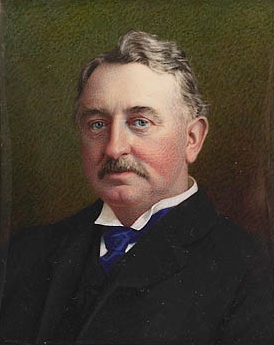
Oriel College at Oxford University is set to launch a new exhibition aimed at "contextualizing the legacy" of Cecil Rhodes, the controversial imperialist whose statue has been at the center of
years of protests.
Rhodes, a 19th-century politician and businessman in southern Africa, has been widely criticized by campaigners from the Rhodes Must Fall movement for his deep ties to colonialism and racism. Despite this, he was a student at Oriel and left the college a bequest of £100,000 upon his death in 1902.
As part of an effort to critically examine his legacy, Oriel College has partnered with the Oxford Zimbabwe Arts Partnership (OZAP) to launch a sculpture competition at the Chitungwiza Arts Centre in Zimbabwe. The winning piece will serve as the centerpiece of an artistic and educational exhibition at Oriel, continuing the college’s broader initiative to explore the contested history of colonialism in Zimbabwe and Rhodes' impact.
A platform for reflection and dialogue
OZAP was founded in 2020 as a creative response to the Rhodes Must Fall campaign and the Black Lives Matter movement. It is a small, community-driven initiative connecting artists from East Oxford with those from the Harare region in Zimbabwe.
The upcoming exhibition, running from September to December, will be hosted first at Oriel College before moving to the University Church of St Mary the Virgin. Plans are also in place for the display to tour other universities and venues, including locations in Zimbabwe.
Lord Mendoza CBE, Provost of Oriel College, will lead the judging panel for the sculpture competition. He emphasized the importance of fostering dialogue, education, and understanding through the partnership with OZAP.
“The competition and exhibition will explore the shared history of Oxford and Zimbabwe, highlighting the transformative potential of creativity,” Lord Mendoza said.
Richard Pantlin, founder of OZAP, expressed enthusiasm about the collaboration. “This is an important step forward in establishing a partnership that offers both educational and cultural enrichment,” he said.
Tendai Gwarazava, chairman of the Chitungwiza Arts Centre, highlighted the significance of the competition. “Creating a sculpture that represents the suffering caused by Rhodes’ wars on Zimbabwe’s indigenous people—while also embodying their resilience and peace—is a crucial step towards healing and reconciliation,” he stated.
The legacy of Cecil Rhodes
Cecil Rhodes played a pivotal role in British colonial expansion in southern Africa, spearheading the annexation of land that later became Zimbabwe and Zambia—formerly known as Rhodesia.
The Rhodes Must Fall movement gained international traction in 2015 when students at the University of Cape Town in South Africa demanded the removal of his statue, sparking similar calls at institutions worldwide. Following the death of George Floyd in 2020, the debate intensified, leading to the decapitation of his statue in South Africa and a wave of protests in Oxford.
This exhibition at Oriel College represents a significant step in the ongoing conversation about Rhodes’ legacy, aiming to engage with history through art and education.







































